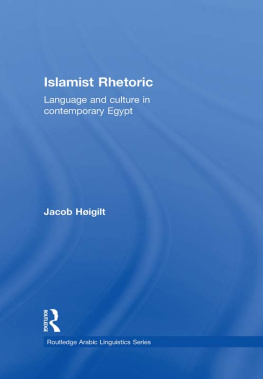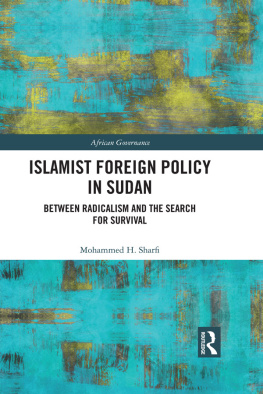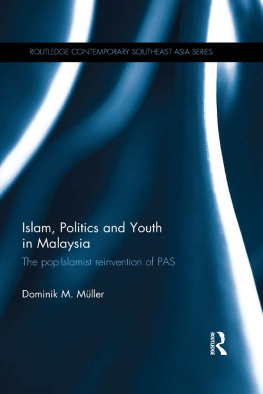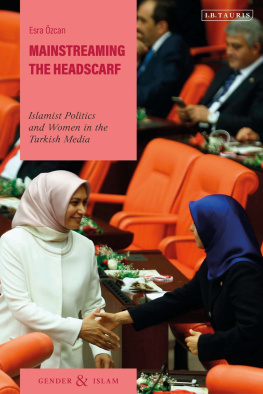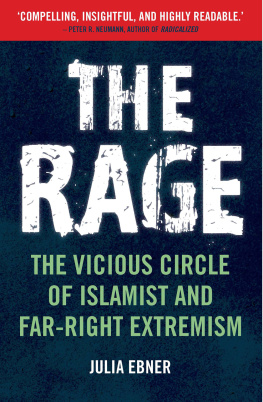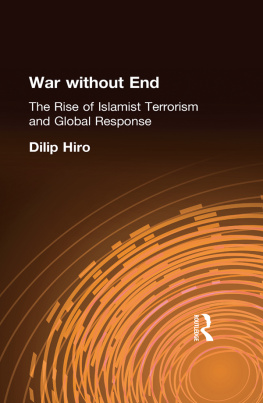Islamist Rhetoric
Islamism in Egypt is more diversified in terms of its sociology and ideology than is usually assumed. Through linguistic analysis of Islamist rhetoric, this book sheds light upon attitudes towards other Muslims, religious authority and secular society.
Examining the rhetoric of three central Islamist figures in Egypt today Yusuf al-Qaradawi, Amr Khalid and Muhammad Imara the author investigates the connection between Islamist rhetoric and the social and political structures of the Islamic field in Egypt. Highlighting the diversity of Islamist rhetoric, the author argues that differences of form disclose sociological and ideological tensions. Grounded in Systemic Functional Grammar, the book explores three linguistic areas in detail: pronoun use, mood choices and configurations of processes and participants. The author explores how the writers relate to their readers and how they construe concepts that are central in the current Islamic revival, such as Islamic thought, Muslims and the West.
Introducing an alternative divide in Egyptian public debate between text cultures rather than ideologies this book approaches the topic of Islamism from a unique analytical perspective, offering an important addition to the existing literature in the areas of Middle Eastern society and politics, Arabic language and religious studies.
Jacob Higilt is a Middle East researcher at the Fafo Institute for Applied International Studies in Oslo, Norway. His main research interests include Islamism, Arabic sociolinguistics and politics in the Arab world.
Routledge Arabic Linguistics Series
General Editor: Clive Holes (University of Oxford)
Editors:
El-Sa'id Badawi (American University in Cairo)
Adrian Gully (University of Melbourne)
Yasir Suleiman (University of Cambridge)
Keith Walters (University of Texas)
James Dickins (University of Cambridge)
Jonathan Owens (Bayreuth University)
The Routledge Arabic Linguistics Series publishes high quality, academically rigorous research on Arabic linguistics to two main readerships: non-Arabist general linguists with an interest in Arabic, and students and researchers already in the field of Arabic language and linguistics. Both synchronic and diachronic studies of Arabic are welcome which aid our understanding of the historical evolution and the present state of Arabic, whether dialectal or standard. Works written from a sociolinguistic (e.g. language variation), socio-historical (e.g. language history), sociological (e.g. language planning), or psycholinguistic (e.g. language acquisition) perspective are welcome, as are studies of Arabic stylistics, pragmatics, and discourse analysis. Descriptive dialectological works also fall within the scope of the Series, as do works which focus on the evolution of mediaeval Arabic linguistic thought. Proposals or scripts for the Series will be welcomed by the General Editor.
Previously published by Curzon
Medieval Islamic Pragmatics
Sunni legal theorists' model of textual communication
Mohamed Mohamed Yunis Ali
Jewish and Muslim Dialects of Moroccan Arabic
Jeffrey Heath
Language Contact and Language Conflict in Arabic
Variations on a sociolinguistic theme
Edited by Aleya Rouchdy
Published by Routledge
Structure and Function of the Arabic Verb
Maher Bahloul
Arabic in the City
Issues in dialect contact and language variation
Edited by Catherine Miller with Enam Al-Wer, Dominique Caubet and Janet Watson
Information Structure in Spoken Arabic
Edited by Jonathan Owens and Alaa Elgibali
Islamist Rhetoric
Language and culture in contemporary Egypt
Jacob Higilt
Islamist Rhetoric
Language and culture in contemporary Egypt
Jacob Higilt

First published 2011 by Routledge
2 Park Square, Milton Park, Abingdon, Oxon OX14 4RN
Simultaneously published in the USA and Canada
by Routledge
270 Madison Ave, New York, NY 10016
Routledge is an imprint of the Taylor & Francis Group, an informa business
2011 Jacob Higilt
The right of Jacob Higilt to be identified as author of this work has been asserted by him in accordance with sections 77 and 78 of the Copyright, Designs and Patents Act 1988.
Typeset in Times Beyrut Roman by Swales and Willis Ltd, Exeter, Devon Printed by the MPG Books group in the UK
All rights reserved. No part of this book may be reprinted or reproduced or utilised in any form or by any electronic, mechanical, or other means, now known or hereafter invented, including photocopying and recording, or in any information storage or retrieval system, without permission in writing from the publishers.
British Library Cataloguing in Publication Data
A catalogue record for this book is available from the British Library
Library of Congress Cataloging in Publication Data
Islamist rhetoric : language and culture in contemporary Egypt / Jacob Higilt.
p. cm. (Routledge Arabic linguistics series ; 7)
Includes bibliographical references and index.
1. RhetoricPolitical aspectsEgypt. 2. Arabic languageRhetoric.
3. Discourse analysisPolitical aspectsEgypt.
4. Arabic languageDiscourse analysis. 5. Language and cultureEgypt.
6. Arabic languageReligious aspectsIslam. 7. Qaradawi, YusufLanguage.
8. Khalid, AmrLanguage. 9. Imarah, MuhammadLanguage. I. Title.
PJ6395.H65 2011
306.440962dc22
2010014827
ISBN 9780415574402 (hbk)
ISBN 9780203841778 (ebk)
This book is dedicated to my family
Contents
Acknowledgements
This book would not have come into existence without the help and support of a number of colleagues, friends and family. At the University of Oslo, Norway, thanks go first and foremost to Albrecht Hofheinz for his perceptive comments and criticism. Gunvor Mejdell, Kjetil Selvik and Bjrn Olav Utvik also read the whole or parts of the manuscript and provided valuable comments, as did Madiha Doss of Cairo University and Stefan Reichmuth of Ruhr-Universitt Bochum. Finally, Routledge's anonymous referee offered a number of helpful comments on the manuscript. I would like to thank the Faculty of Humanities at the University of Oslo for giving me a generous grant that made it possible to stay in Cairo for as long as I needed. The administrative staff at the Department of Culture Studies and Oriental Languages deserve warm thanks for helping me with various economic and administrative issues that I was pathetically incapable of solving on my own. Fafo Institute for Applied International Studies, Oslo, gave me a grant that enabled me to complete the book.
In Cairo, Emad Abdel-Latif, Adel Abd el-Moneim, Madiha Doss, Gerda Mansour and Mark Sedgwick were sources of great academic inspiration. Tor Kinsarvik Engen provided insights about Egyptian politics, as did Alistair Baskey, who also suggested stylistic changes in the manuscript. I should also thank all the people in Egypt who gave willingly of their time to answer my questions: Mirwat Anwar, Jaml al-Bann, Muammad fi Diyb, Nabl Abd al-Fatt, Walid Kazziha, Ab al-l M, Hala Moustafa, Seif Salmawy, Earl Tim Sullivan and Husam Tammam.
The American University in Cairo Press and Arnold kindly granted me permission to reprint copyright-protected material from the following books: Linguistics in an Age of Globalization and An Introduction to Functional Grammar. Revue des mondes musulmans et de la Mditerrane

